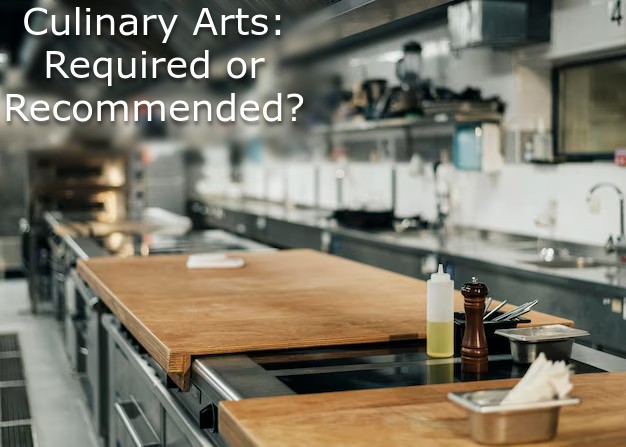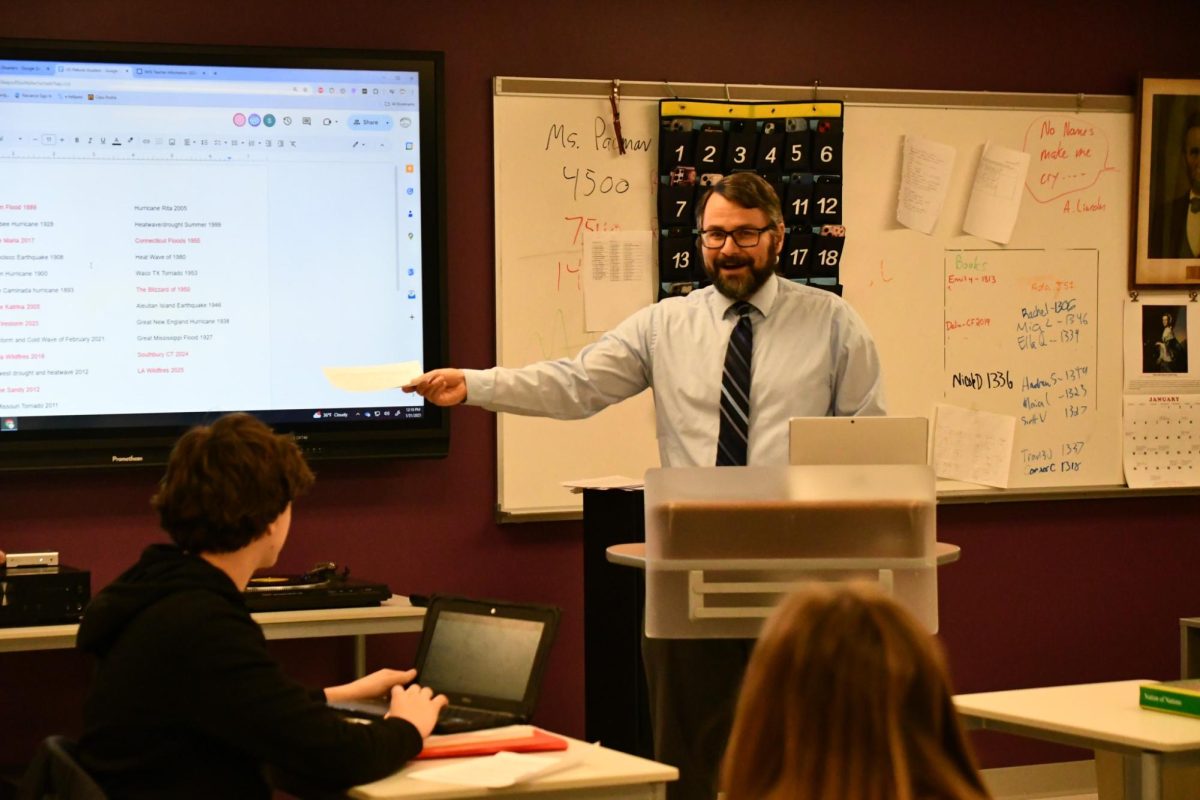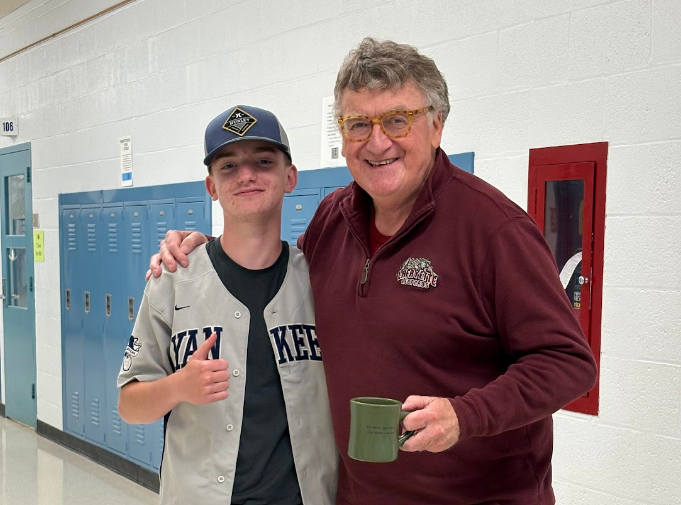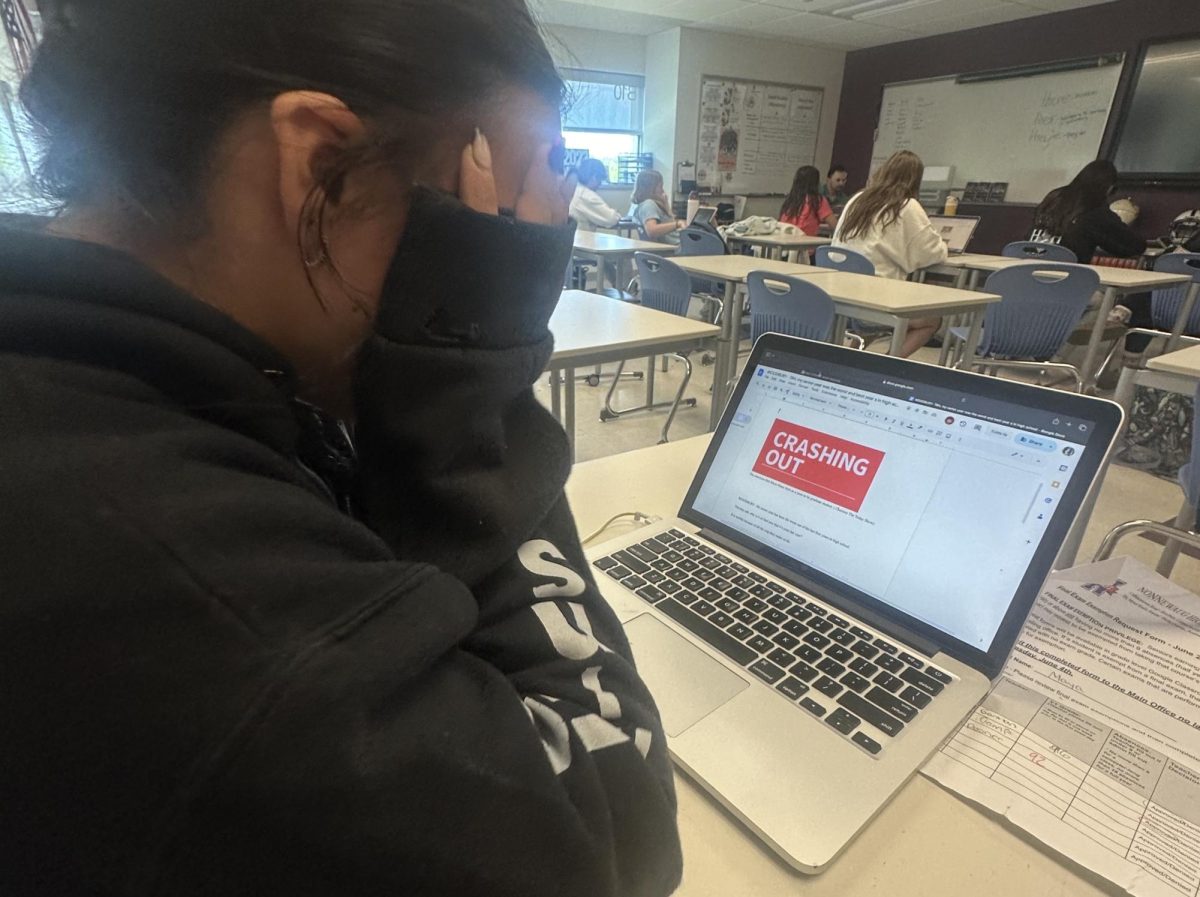WOODBURY — Too many young people these days are unfortunately unfamiliar with the basic necessities of working in a home kitchen and instead rely on microwaved meals which lack any nutritional value.
I myself suffered in the same way. Before taking Culinary I, Nonnewaug’s base culinary class, I was clueless in the kitchen.
Boiling water was the height of my skills before taking the course here on campus. After my first culinary class, I was enlightened in the ways of sanitation and food expertise with such respect that I could prepare dinner without my parents.
“For many reasons, everyone should know how to cook,” said Nonnewaug culinary instructor John Dominello. “You should know how to take care of yourself and how to shop for groceries. Once you have to start paying for groceries yourself, life changes.”
Dominello and I aren’t alone in this standing; many students agree, too.
“I think it should be required,” said senior Andrew Parrella. “Some people don’t even know how to use a microwave.”
Here in New England, according to Middlebury College, the 1950s featured a vast majority of home economics programs at the school — courses which were dominated by women.
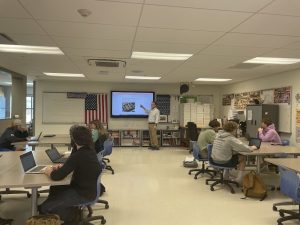
And in the early 1900s, practice homes were added into universities across the United States for students to learn more hands-on, but in the 21st century, the programs dissipated as did the stereotype of the kitchen being dominated by women.
According to the Culinary Institute of America, 51% of graduates are male. The unified arts have an appeal to everyone, yet the field still hasn’t seen the boom in popularity that it deserves.
So what exactly is the problem now?
I’ll tell you what: funding and scheduling.
How many times has this been a topic of conversation in the world of education? From teachers not getting paid enough to schools not having enough money for supplies to provide students, school funding is always a hot topic since there are so many competing necessities. Culinary courses require kitchen supplies, food, and other purchases, and if every student had to take the course, those costs would only increase — and another teacher might be required to meet the demand.
While funding culinary arts can hamstring some school districts, other face headwinds when trying to find room in student schedules. Mandating the course here at Nonnewaug may be especially difficult due to the fact that agriscience students already face many course commitments through the program.
“It shouldn’t be mandatory because, for our school specifically, agriscience students need more free spots inside their schedules,” said junior student Chloe Walsh, Woodbury FFA Chapter reporter.
For students like Walsh, taking culinary would overlap with some of the skills and content already embedded into some agriscience courses.
“A huge part of [the agriscience] curriculum circles around food systems and production anyways,” Walsh said.
While courses like agricultural production teach students about the processes of manufacturing food, culinary focuses on the skills required to prepare the food.
“I’m taking ag and culinary,” said senior Luke Tarini. “I think culinary helps me figure out how to prepare the products we produce in ag.”
Next year, Nonnewaug will be introducing an eight-period schedule, and Dominello, along with other elective teachers, are hopeful to see more of their courses appear in students’ schedules with this change.
“I think classes like this or woodworking need to be incorporated back into the curriculum,” said Dominello. “They’re life skills.”
Learning these life skills are required to survive, so they should be required to graduate high school.
This is the opinion of Chief Advocate reporter Gary McVety, a senior at Nonnewaug.



